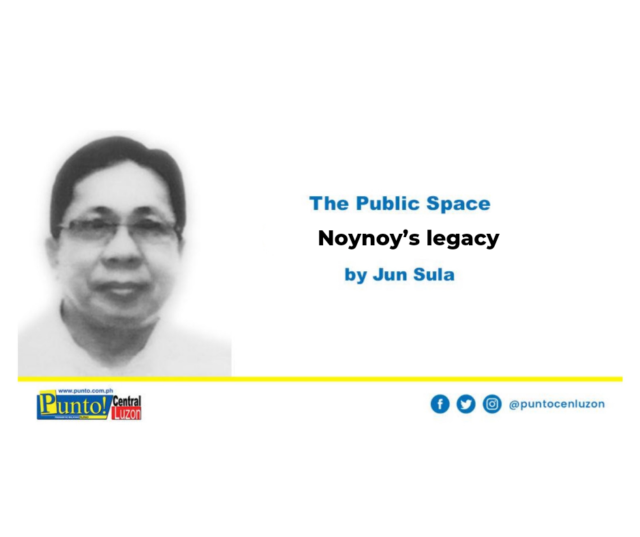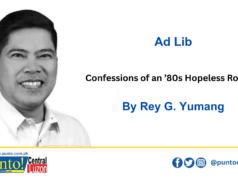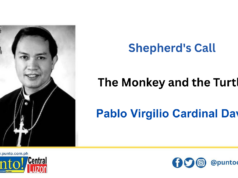IN DEATH, as in life, Noynoy Aquino kept his life’s blinds half-closed. It’s one part inspiration, one part enigma. The overflowing tribute of a nation in shock and grief explains the first; the other one leaves the nation hanging. As in the tradition of great men, time and history is left to fill in the blanks.
At least his death, like that of his parents before him, left a clue to an answer to a classic Machiavellian choice.
Should a ruler be feared or loved? Machiavelli asked the immortal question in his book ‘The Prince’. Ideally, he went on, he should be both. If not possible, he wrote, to be feared is better than to be loved.
By their funeral processions, you shall know them. Loved leaders seem to have longer funeral processions. Our historical narratives about the Aquinos are succinct. When Ninoy Aquino was buried, it took about 12 hours before the procession reached his resting place in Paranaque. It took 8 hours for the cortege of his widow Cory to arrive at the same destination. For Noynoy, his journey to their common resting place may take a much shorter time, primarily because of the pandemic. In any case, all of them are obviously showered with great affection as leaders of their people.
Noynoy must have read Machiavelli’s book. He belonged to prominent political families and he was educated in a local Ivy League school. While Ninoy might have tried Machiavelli’s ideal balance of fear and love, Noynoy’s choice was simpler. After all, he was seen more as his mother’s son than his father’s. Noynoy was not quite in the class of his martyred father. He was the quiet type, at times perceived as aloof and distant, even patrician in demeanor. Ninoy was loquacious, glib, sometimes irreverent. He was fondly called ‘sarsa’(gravy) by people close to him because he always spiced his conversation with his inimitable wit and humor.
Ninoy was combative, especially when he felt he was threatened in any way. He suffered no fools, and made sure they understood, by his words or actions. At one time when he was a senator, Ninoy came to the Senate armed to the teeth. By contrast, Noynoy, when he was criticized or pilloried, never responded with harsh words or demeanor. As his sisters quoted him the other day, he could still sleep well with whatever was thrown at him. Or at least he didn’t show his emotions.
Noynoy was never a politician in the traditional sense of the word. He probably never dreamed of becoming one, in fact, even as Ninoy was arguably the most admired politician in his time. Two things changed him: the tragic death of his father that eventually triggered the EDSA People Power in 1986 and the succeeding rise of his mother to the presidency and her loss to cancer. His personal life as well as his political leadership were, no doubt, strongly shaped by those family tragedies.
By strange and familiar coincidence, Noynoy’s death comes at a time when the biggest single issue is a familiar one: a clime of fear. As in the past, fear is engendered by human rights violations, abuse of democratic principles, weakening of democratic institutions, assault on the media and fostering of authoritarian leadership. Machiavelli’s oft-quoted ‘means justifies the end’ diktat appears to grow bigger and more expansive each passing day.
In light of Noynoy’s passing, one shared observation has emerged: why is it that every time there is a crisis in the Philippines an Aquino dies? One astute comment is challenging: perhaps his death, like that of his parents, would wake up the Filipinos from stupor. Does this suggestion, as apt and timely as it may be, resonate with the Aquino sisters’ ‘mission accomplished’ notion?
Democratic leaders like Vice President Leni Robredo are perplexed at the apparent drawing attraction of Filipinos to the fear-creating type of leadership. Weeks before Noynoy’s passing, Duterte’s party mates in the PDP-LABAN were pushing him to run for vice president to continue his governance agenda and policy. As usual, the blinds were shut at 25 Times Street.
Surprisingly, Sen. Imee Marcos tribute to Noynoy may help. She described him as a simple and kind soul. Amidst the dirt and corruption that have characterized Philippine politics, Noynoy had remained the person who he said he would be: the son of a martyred father and widow who showed love, not fear to their countrymen, and love for democracy. He kept his integrity and dignity intact.
It’s a pity, an Aquino admirer said, that Noynoy being the only son, did not leave a son of his own to continue the family legacy. But that maybe asking too much and for more and longer funeral processions. Santayana’s warning is a constant reminder: they that do not remember the past are condemned to repeat it.





